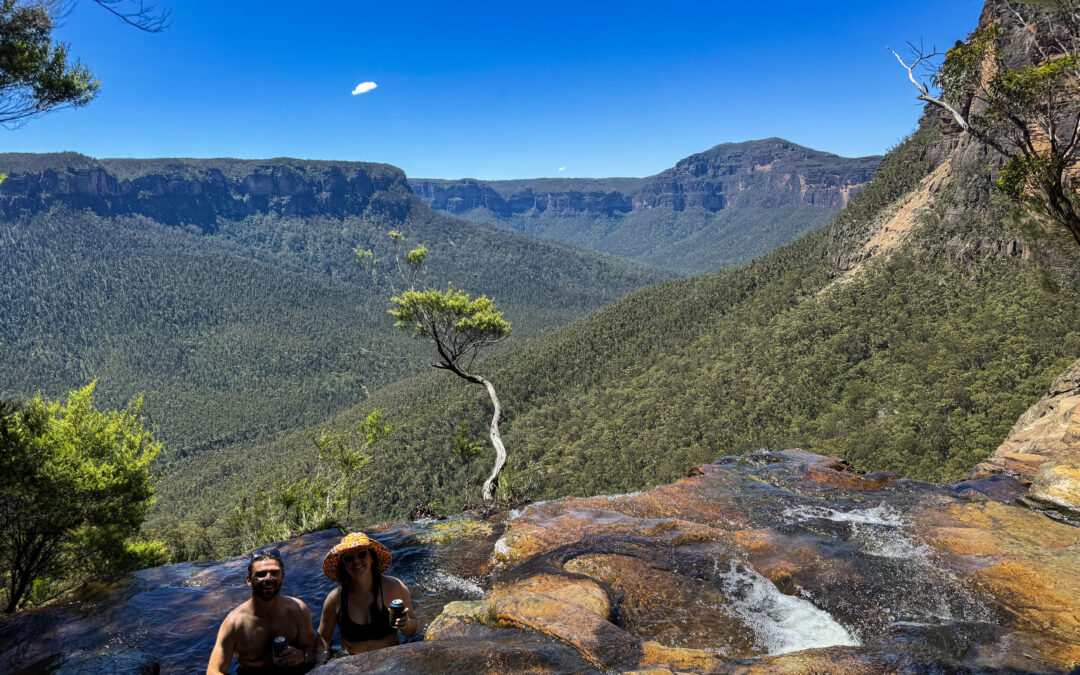Moving back to Australia after years of yachting can be somewhat daunting and a bit of a challenge. Louise and Charlie, who met on board a super yacht a number of years ago, are one couple that made that decision to move back to Australia during covid. They are happy to share their experience on their time overseas, coming home to continue yachting in Australia, partner visas, giving advice to crew looking to get into yachting and to international crew coming to Australia to find work.
Where and when did you start your yachting career?
Louise – April 2014, Antibes, France
Charlie – October 2016, Cap D’ail, France
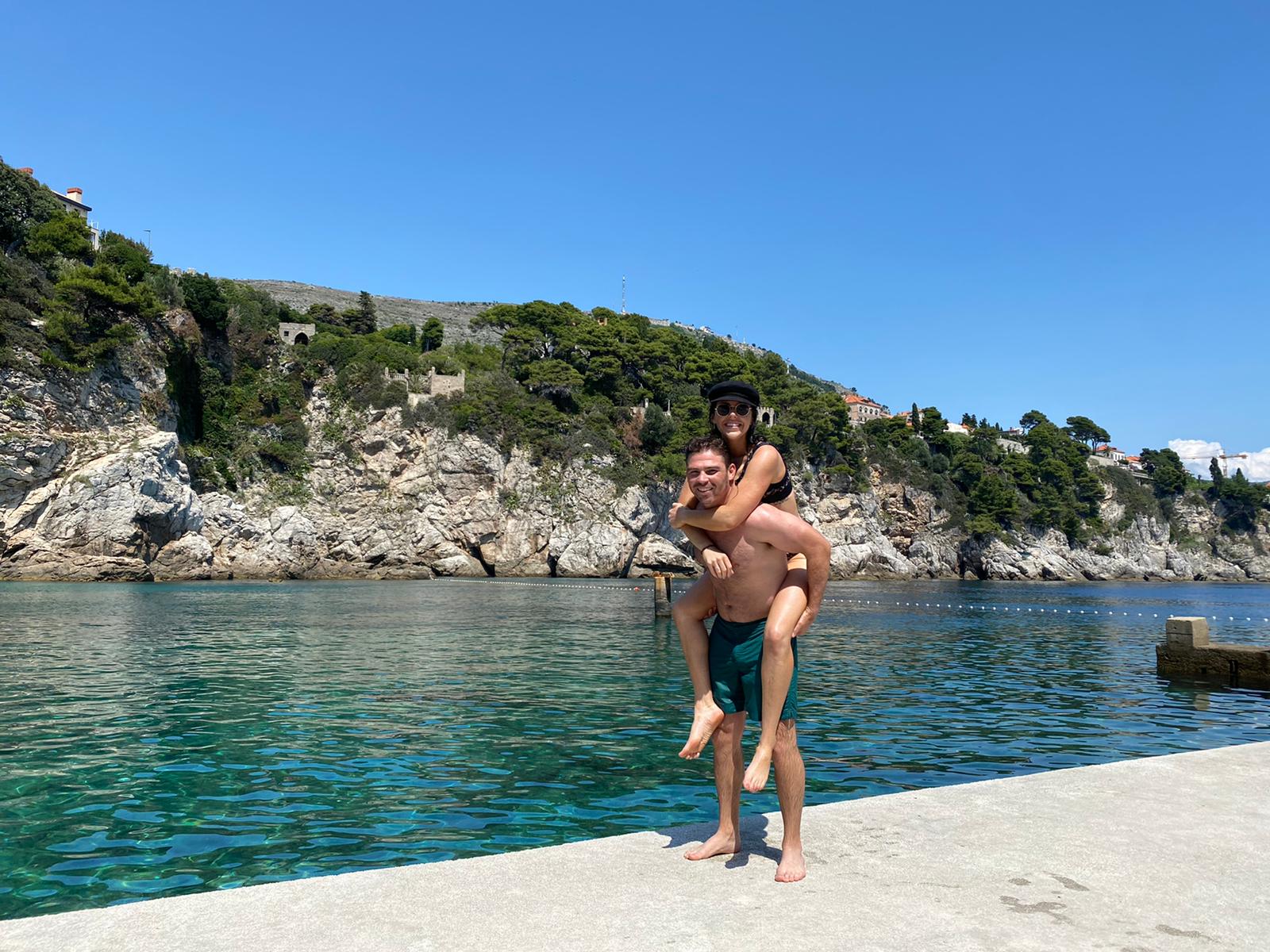
How did you find your first job?
Louise – Loads of dock walking for daywork, a few temp gigs, I spent a good amount of time in Antibes. The industry is very shallow and I’m not blonde / slim etc. so found it a bit harder than a couple of my friends at first. I ended up getting a great gig as a laundry stew on a 73m new build through an agency. I’m still best friends with most of the girls from that boat.
Tips for yachties starting out in Antibes or Florida.
How do I politely say “stop watching Below Deck?”
Louise – Gosh, it’s been so long since I started out and I’m sure gaining your first yachting position has become even more competitive and is completely different. General advice for interior, follow The Yacht Stew and other pages for help and advice (Yachties of Australia). Register with crew agencies and try to build relationships with them. Be presentable, be polite, everyone you meet is a potential contact and the industry is very small! For the love of god, tie your hair up for an interview. Don’t be afraid of hard work, be flexible. Come into the industry with relevant experience – clean some houses etc, do some bar work! An extra skill like yoga instructor or nannying or floral arranging could go a long way – I sew and that helped me gain an edge as laundry stew as I could do crew uniform alterations onboard. Have an eye for detail and a willingness to take direction/learn. Get some daywork, and don’t give up.
The industry is an amazing one and is worth the long hours when you get to jump in the crystal waters of the Baja peninsula and swim with whale sharks in your lunch break or bump into some of your favourites in some random bar in Monaco.
Charlie – Well…where do I start. I totally agree with Louise on a lot here. ‘It’s not below deck’. This is a serious industry and there is a great career to be had. Rant over! No seriously it’s amazing! Starting out you need to show willingness, it’s an industry where going the extra mile counts. It’s what we build on to make our client’s experience that extra bit special. When starting on deck, be a sponge and absorb every bit of information possible. A willingness to learn but also able to take initiative. There is hierarchy and you need to be able to take guidance and understand your place within the team. Like Louise said, a keen eye for detail is a must and a slight bit of OCD, even better. I say to crew starting out; if something doesn’t look quite right, it’s probably not. It could be something out of line on deck, on a guest trip it could be as simple as a cushion or deck furniture, or something is left out on deck that shouldn’t be there. Use your initiative or ask the team. One of the main things is be a good crew member, vital in fact! You can be taught all the tricks of the trade but you need to show you can be a brilliant crew member, cabin mate and overall good person. This will take you far. Good luck!
How many years were you working overseas before moving to Australia and joining an Australian flagged vessel?
Louise – Six years, I only left international yachting due to covid. I came home to Australia mid-2020 for my scheduled leave and during the time I was off, they laid off our entire crew off the 140m yacht we were working on. Due to travel restrictions, it was difficult to leave Australia without being vaccinated (and our vaccination rollout here was very delayed). No boat would hire me from Australia without being vaccinated and I couldn’t leave Australia without being employed first. I had a bit of time off with friends and family I hadn’t seen for a long time.
As Australia was out of lockdown for a bit I started working back home (admin and seasonal work). Charlie was still bosun on an 80m in Europe. We did long distance for 6 months before he came to Australia for a holiday to see me. As it was so hard to get a travel exemption for him (as a UK citizen) to get into Australia, and difficult for me to leave, we decided to stay and make a go of Australian yachting so we could work together again. We got offered a couple’s job as First Mate and Second Stew on a 35m yacht in Perth, cruising around the Kimberley’s, which was unreal. We now live in Sydney where I work for a charter management company with a fleet of charter vessels as well as brokering domestic and international charters.
Charlie – Six years, officially left now. As Louise has mentioned I arrived after being on leave from a previous boat. Leaving that boat was a complete personal decision due to the way the world was during the pandemic. Again, as Louise has mentioned we joined a vessel in Western Australia, after which, I have delivered a 50m to Sydney and worked as First Mate for a year on there before it headed back to Europe. After that yacht I had a brief stint internationally, but came back to Australia and I have taken up a role as Fleet Manager for Chapman Yacht Management, based in Sydney. The company has a vast array of vessels at various marinas around Sydney, and I head up the larger yachts within that fleet. At the same time, I hold a position through the company as the senior Captain on a 27m yacht within the fleet.
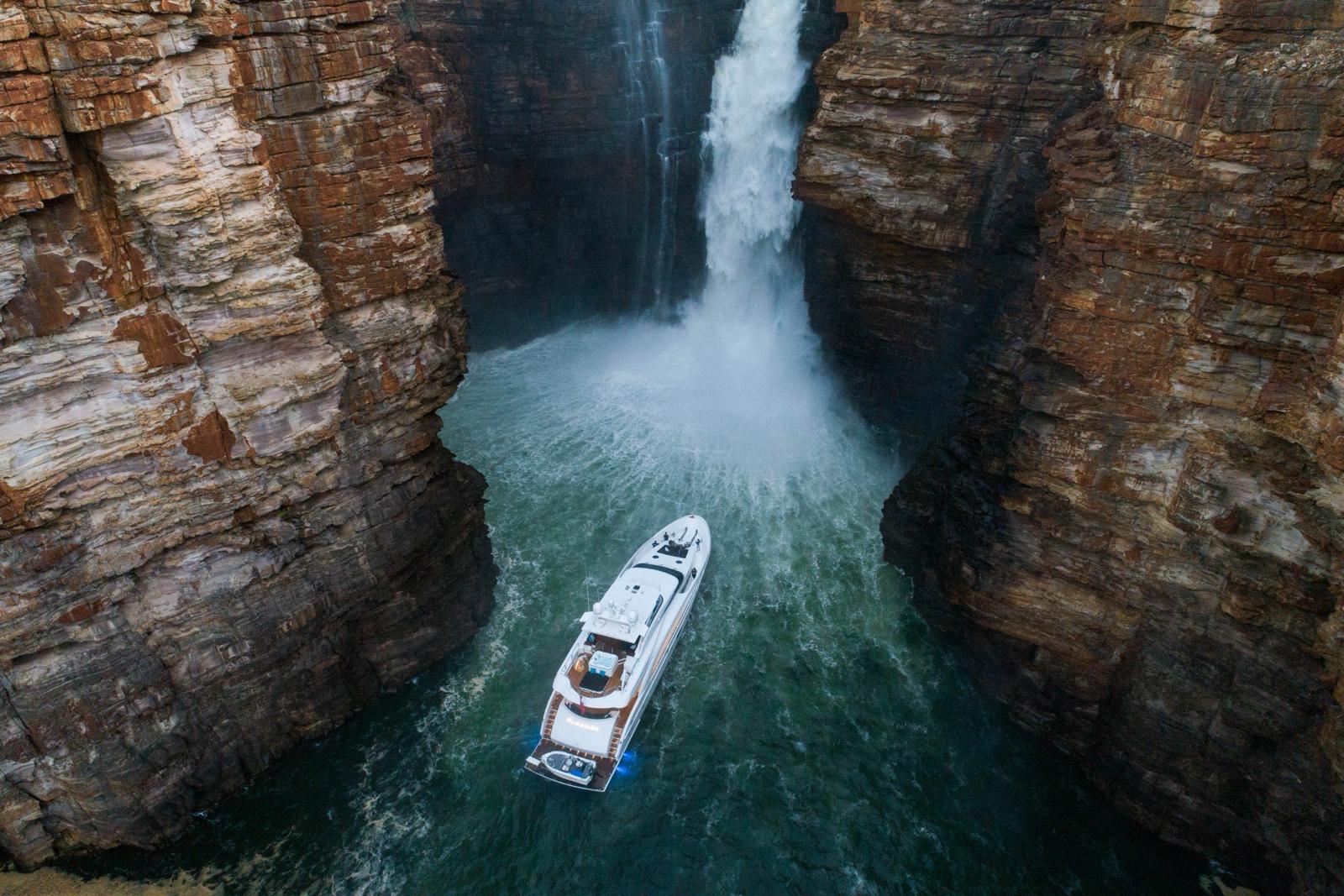
Main differences between international yachting and Australian yachting? Which is better?
Louise – This is a tough one. They’re very different! It was a massive shock to the system going from a 60+m boats and a 140m new build project to a 35m Aussie charter boat in the Outback! The Aussie charter guests were fabulous, everything was a bit more laid-back but everyone was still focussed on delivering a fantastic and high-end guest experience.
Charlie – The industry is very different all over the country to be honest. You have vessels here that deliver long term charters, equivalent to international yachting. Then you have day charters, which is popular in Sydney Harbour, that run from four hours to a full day. This is geared towards cooperate, birthdays, weddings, anniversaries and so on but still giving the clients the best possible experience just like a longer charter. As a career, it can give you a lot more exposure to driving vessels of various sizes. For myself, it’s been a steep learning curve but very rewarding – starting on deck and driving guest tenders to now running 150GT steel hull Moonen yacht and driving 35ft – 75ft fibreglass vessels.

Was it difficult to get a visa to work in Australia?
Charlie – Yes, but we went down the route of partner visa as it was easier and we would have done it one day. There is a specific superyacht crew stream visa you can get that was also an option.
What are some highlights of working on yachts, the places and experiences.
Louise – Too many to count! I was lucky enough to start on a new build in Italy and live land-based in the stunning hills of Camaiore with some of my now best friends. Italy has a special place in my heart forever.
My first real season onboard a yacht was in Antigua, which was absolutely incredible! Diving in places like the Galápagos Islands, Costa Rica, the Caribbean, with tiger sharks in French Polynesia – diving anywhere has been so amazing (for a girl from outback Australia). Swimming with humpbacks while based in Tahiti is up there as one of the best days ever.
Being based in Baja, Mexico on and off for two years was also very special. Sitting in the crew mess for lunch at anchor one day before a boss trip and spotting whale sharks out the window, and everyone running and grabbing snorkels and fins and jumping in the water in their uniform is also up there.
The comradery of yachting is also like nothing else. Working long hours and living with everyone you work with bonds you. From the banter in the crew mess, the silliness in the stew pantry when dinner service is postponed or the laundry folding parties that you rope the deck crew into, to the crew days off on the one day between charters – it’s all pretty special. At the risk of being sappy, getting to meet Charlie and fall in love and share these incredible adventures is probably one of the best parts.
Charlie – I think I will always have Mexico close to my heart as a special place. For obvious reasons, meeting Louise. We were fortunate to be on a yacht that had a very exciting itinerary and one spot it ventured to was French Polynesia. We took a weekend off and went to swim with whales off the island of Moorea. The Humpbacks would swim within a couple of feet of us and I swear it looked straight into my sole! That was something special.
I think experience wise on deck, my first three years in yachting. I spent my first winter onboard a 50 meter whilst it was going through its 10yr survey. This was rewarding and I started to understand the project work involved. The next two years were spent on a yacht where they really pushed us on that project work and maintaining the vessel to an immaculate standard. I like to think of it as a mini apprenticeship.
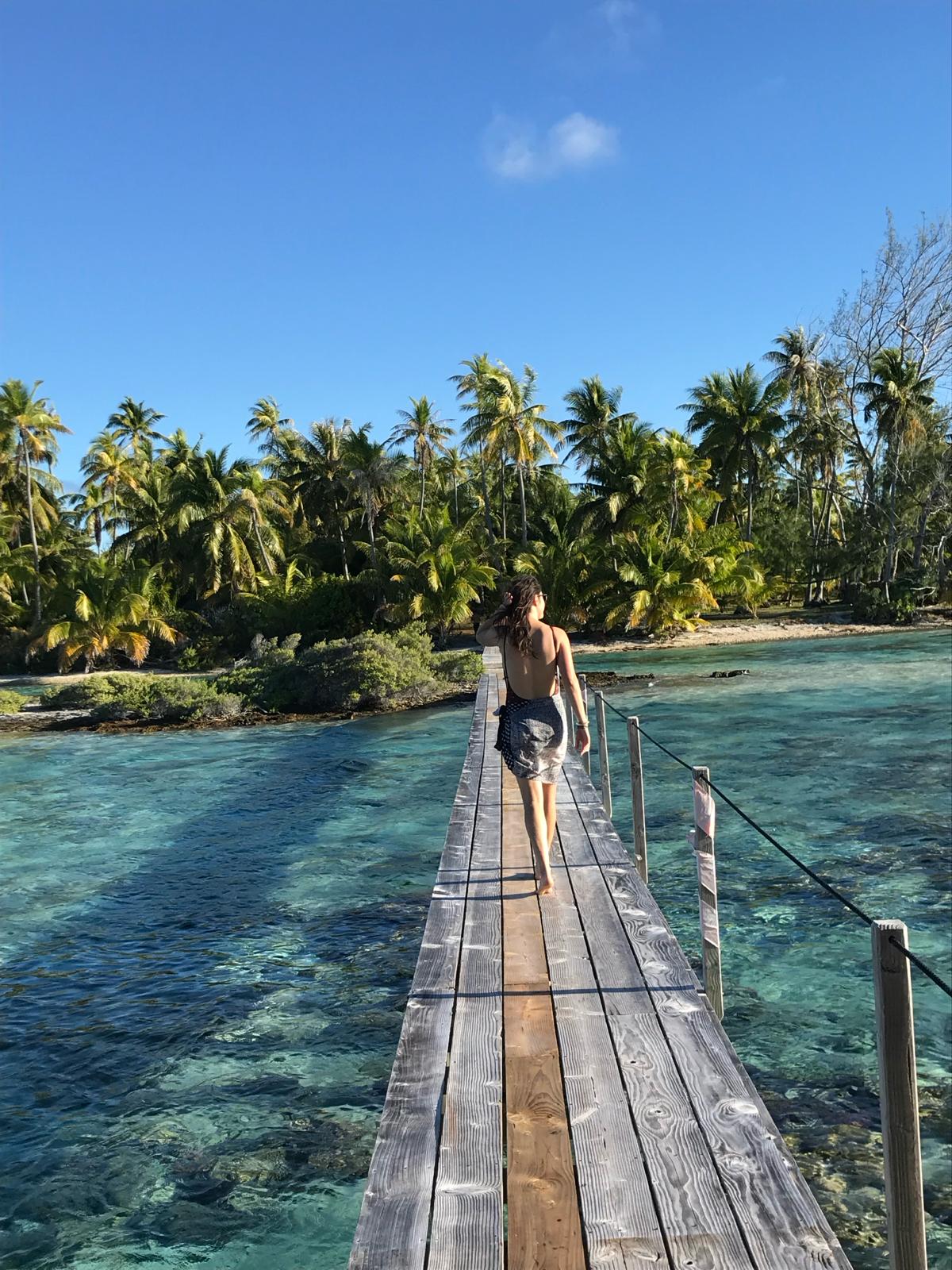
What are your tax obligations while working in Australia?
Charlie – Same as an Australian working here. Aussie yachties overseas need to remember that taxes pay for our roads, schools, healthcare etc.
Is there anything else you wish to add for Australian yachties and the industry?
Louise – The industry is really starting to boom here in Australia and there are lots of new boats coming in. State and federal governments are getting involved and putting millions towards public infrastructure upgrades and tax concessions to hopefully bring millions in economic benefits to every port in which a vessel makes anchor.
In my current role of Charter Manager and Broker, we have a few new vessels arriving under our management in the next year, around the 40m range.
Charlie – I think the industry here is really taking off as Lou has mentioned. AMSA are beginning to work a lot harder to accommodate international qualifications here and I think it’s for the best. I second Lou’s answer again regarding boats coming into Australia. Shipyards and marinas are getting big revamps as states are starting to realise international vessels are seeing Australia as an amazing destination for owners and guests.
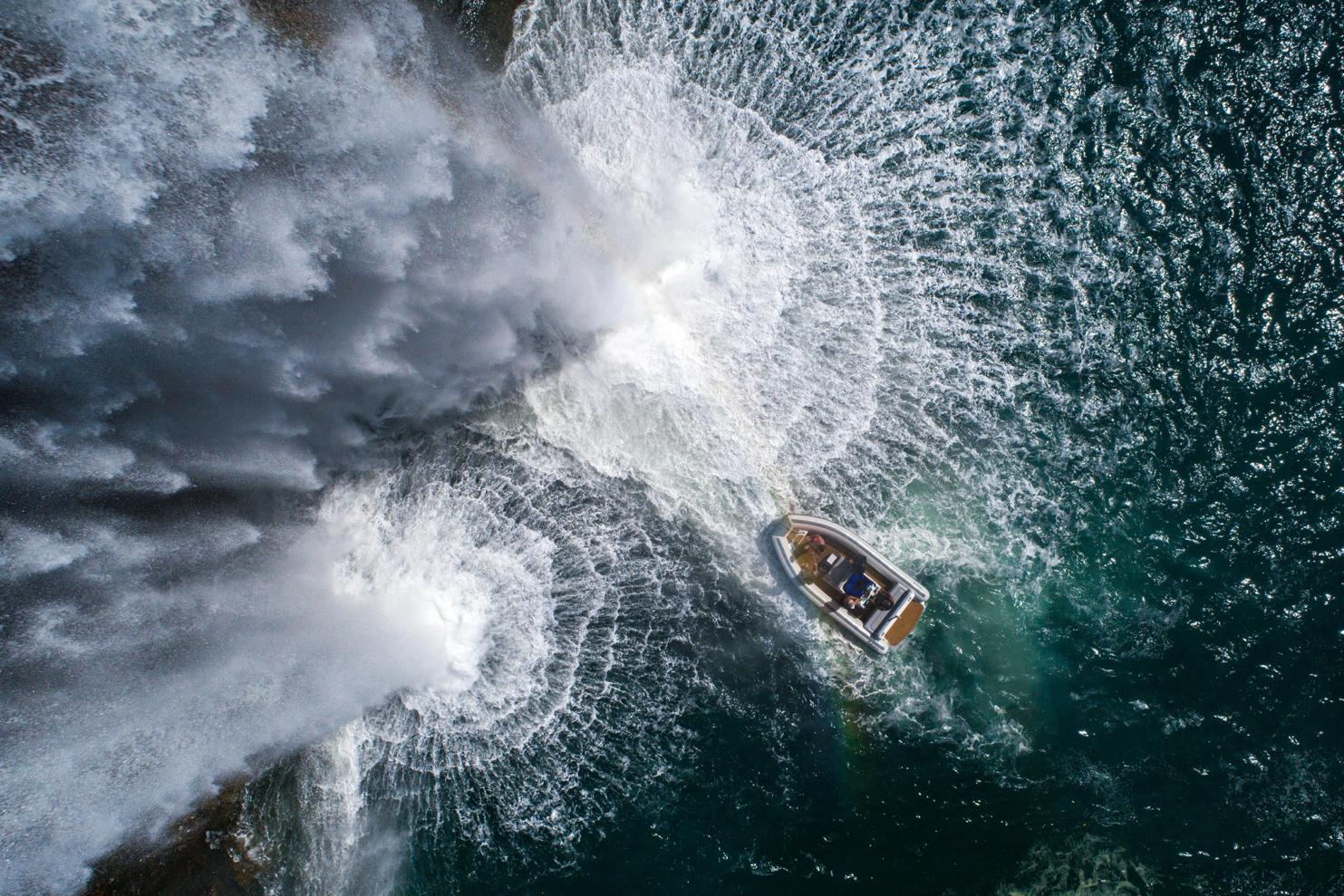
If you want to know more about yachting or get started in the industry, check out Yachties of Australia for information, courses, discounts, tips and advice.
Alternatively, get in touch today if you have any questions about the yachting industry.

